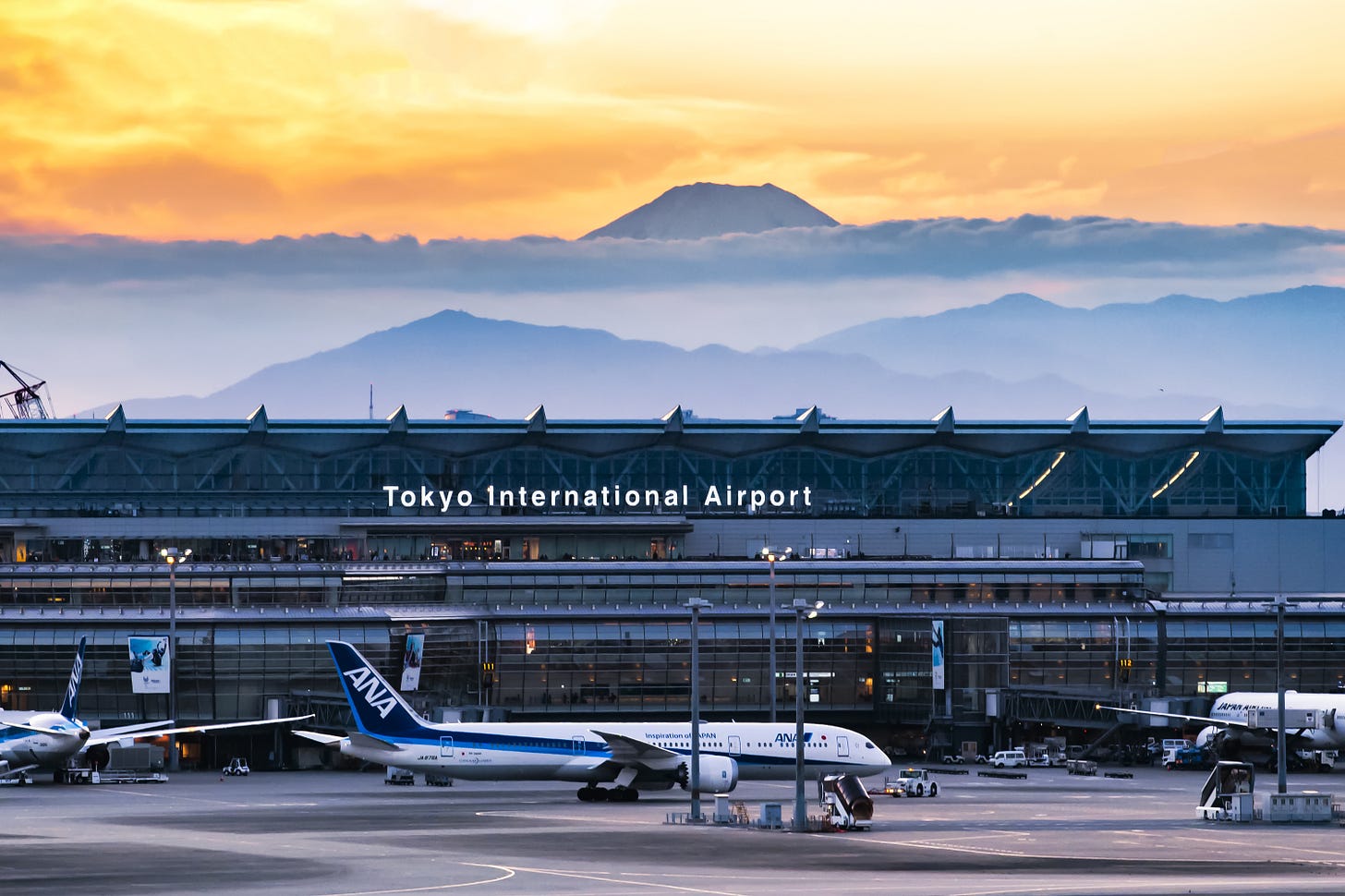The internet is Tokyo
Hello intersectional thinkers 👋
Greetings from Tokyo as I’m enjoying my new favourite pastime, listening to live ATC (aviation traffic control) communications while plane watching on the balcony haha… very niche but give it a try! It’s dangerously addictive. Something about the sounds of those NATO alphabets…
And on the topic of niche stuff in Tokyo:
My parents always dreamed big. They have the confidence to take on uncertainty any day, and would always push me to do the same.
Even when I wanted to be a neurosurgeon, my mom gently suggested that it’s a safe choice and urged me to explore a path less rigid.
So I pressed on to find my path less rigid – going from law, to management consulting, to making YouTube videos on mental models and writing about intersectional thinking on the internet.
I don’t know if I’m doing it right, but the uncertainty is exciting and the proud youth in me feels confident that I can tackle any problems, just like my parents.
But recently, there’s been this small thought. A teeny tiny, but just audible whisper that asks:
What about all those who failed?
We always document success stories. Survivor bias is inherently built-in. But what about all those who had the right ideas, right execution, right everything, yet it didn’t work out for them?
Like Copernicus and Galileo. Way ahead of their time, knowing the Earth revolved around the Sun. But they died being accused of heresy. Or Z.com vs YouTube. The former had everything figured out for online entertainment but broadband penetration wasn’t there. Two years later, YouTube without a business model revisited the idea and hit jackpot.
What if I fail?
Then I saw this line in James Clear’s newsletter:
The internet is Tokyo.
The original context came from Journalist and author Derek Thompson on how to succeed as a writer in the modern world:
People who want to be big sometimes think, "I have to immediately reach the largest possible audience." But in a weird way, the best way to produce things that take off is to produce small things…
And the reason why I think this is true I call my Tokyo example. If you go to Tokyo, you'll see there are all sorts of really, really strange shops. There'll be a shop that's only 1970's vinyl and like, 1980's whisky or something. And that doesn't make any sense if it's a shop in a Des Moines suburb, right? In a Des Moines suburb, to exist, you have to be Subway. You have to hit the mass-market immediately.
But in Tokyo, where there's 30-40 million people within a train ride of a city, then your market is 40 million. And within that 40 million, sure, there's a couple thousand people who love 1970's music and 1980's whisky.
The Internet is Tokyo.
The Internet allows you to be niche at scale.
As a Tokyo resident, I want to take this analogy further.
The truth is, competition is FIERCE in Tokyo. These niche shops open and close.
On my street, there’s a taiyaki (red bean paste snack) place that’s been open since 1901. That's 120 years ago, 38 years before WWII!
But the shop right next door has gone from vintage clothing to retro bar to deep fried skewers to soft serve ice cream to premium bubble tea shop #1 to franchised bubble tea shop #2 in just the last few years. And whoever came before that couldn’t make it either.
But! While niche shops may close, the people behind these shops don’t stop.
Some test their original concept in a different area with better foot traffic. Others rebrand to appeal to different target customer segments. Some might collaborate with other brave souls to fix problems. Still others get on crowdfunding and eventually pop up again somewhere else.
The Internet is Tokyo. The creators are determined.
If you get it on your first go, great! If you don’t, don’t fret! It’s only the beginning :)
Have a great week!
Vicky
PS. let me know if you’ve got any otaku pastimes you recommend! Checking out Other people’s real life interests is how we can fight the algorithm recommending the same old stuff haha

